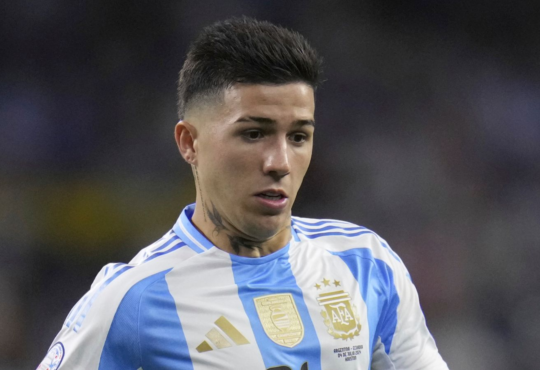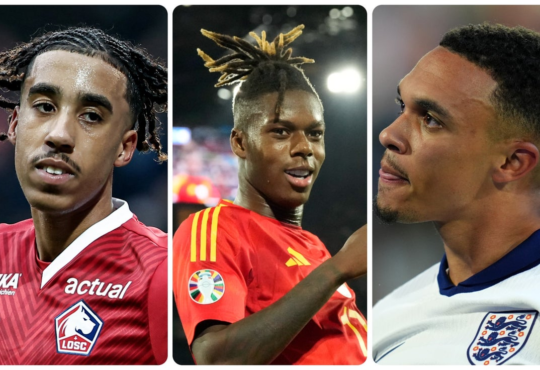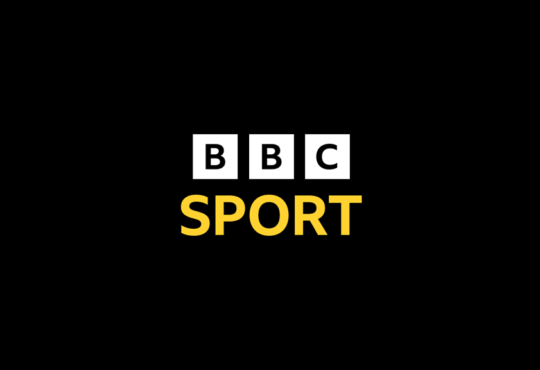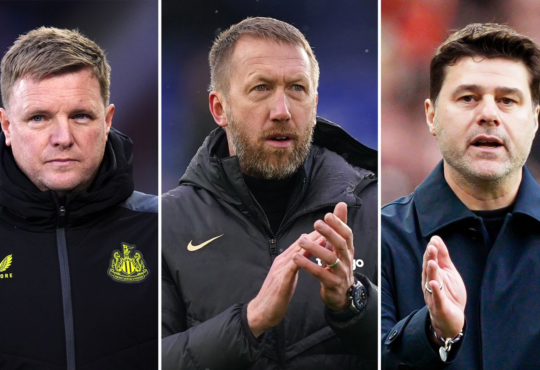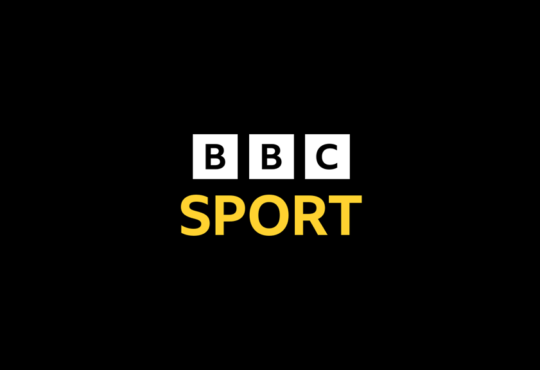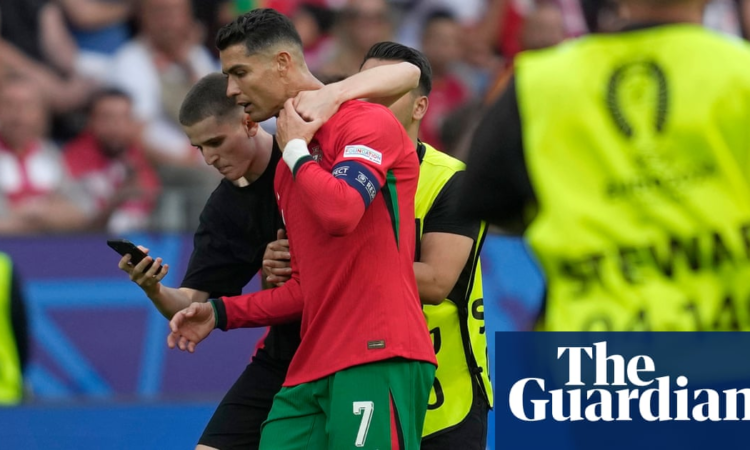
The sport has not come to terms with his celebrity status. After the pitch invasion drama, Uefa must deal with it
There was something disconcerting about the man being grabbed and jostled and hauled away by security guards on the concrete causeway below the executive boxes half an hour after full-time at BVB Stadion Dortmund on Saturday night.
For one thing the man seemed unusually well groomed, brilliantly ear-ringed, dressed in full shiny Portugal tracksuit. He was also beaming relentlessly, shouting things such as “Big Love” and “Say Hi to Georgina”, doing the heart gesture with this hands even as three men in hi-vis jackets grabbed him by the elbows.
Could he be a player? A stray squad member? Looking closer there was something a touch inauthentic and weak-chinned about his take on the handsome cool young footballer look, the muscle definition not quite there, jewellery not credible. The whole tableau was being watched by its own dedicated group of spectators. Who is he, we asked. The spectators shrugged. He’s Cristiano Ronaldo.
What the stadium security guards were grappling with in that moment was a deeply post-modern event. Here we had a Cristiano Ronaldo lookalike, or Cristiano Ronaldo cosplayer, trying to break through the fourth wall, to intersect with the actual components of Cristiano Ronaldo’s real life, entourage, bouncers, family.
Perhaps the weirdest part was the fact this barely seemed strange in this context. Being a Ronaldo lookalike is a legitimate career path, judging by the large number of them on the internet and newspaper stories on the latest AMAZING CR7 LOOKALIKE over footage of a hair-gelled youth doing a “Siuuu” gesture in a Turkish shopping centre.
A notable aspect of this culture is how the lookalike will always generate shock and wonder, a sense of devotional awe, as though this is a modern version of the medieval trade in holy relics, the collarbone of Jesus Christ, the dentures of John the Baptist. Six people have invaded the pitch in Dortmund to steal a selfie. The abs of Cristiano Ronaldo have appeared in honeydew melon in Manilla. We thank you CR7 for this content.
In Dortmund Ronaldo’s private box was less a distraction during Portugal’s 3-0 defeat of Turkey, more a competing entertainment event. Heads were craned, necks wrenched. Rumours surged around that the YouTuber IShowSpeed had been glimpsed, an amiable A-list court jester who clamps himself on to very famous people (“I’m here with Vigh-Ratt Kohli!”) and who has 25.4m YouTube subscribers, bigger than the population of a medium sized nation, Taiwan or Mali or Burkina Faso.
None of this is new at this tournament. It is a more evolved version of a familiar phenomenon. But in Dortmund it felt more than a little out of control. The chief takeaway from the pitch invasions is that clearly this is not being managed properly by Uefa and the host nation, who have been caught unprepared.
It can’t be allowed to happen again. The pitch invaders are both tedious to watch and potentially dangerous. Ronaldo has more followers on Instagram than anyone else in the world. And the people of the world are unstable to a statistically significant degree. Today’s manhandled lookalike is tomorrow’s rather less controlled interaction.
Who’s fault is this exactly? And who should adapt to deal with it? There is a sense football has not really come to terms with the magnificent monster it has built here. Ronaldo is, by some measures at least, the most famous person in the world. This is a new development for the sport.
In a sense Ronaldo is now too famous to play football. Perhaps playing football will now become one of those things very famous footballers can sadly no longer do, like going for a coffee or walking around the block. Ronaldo may have to outsource it to his proxies and representatives. Maybe he could send a video message to be played during the game.
This isn’t entirely a joke. There are issues of scale here. Ronaldo has 107 million more X followers than Uefa Euro 2024. His base annual salary is about the same as the total participation fees of 24 nations at the tournament. Having him out there under normal footballing strictures is like staging a Taylor Swift concert where Taylor is guarded by students and jobbing temps in hi-vis jackets, where people just get to run on and talk to her every few minutes.
A solution is required to this practical problem. The relevant people will slam Uefa, because Uefa is in charge and must now deal with it. Arguably Uefa could insist Ronaldo provide his own over-and-above security, as Lionel Messi does in the MLS, where he has a squad with tasers. This is in effect Ronaldo’s own doing, a heavily monetised parallel career.
For the spectator, the fan, there was the sense of an intrusion by things that are not sport, the spectacle collapsing at its centre, a really engaging Euro 2024 group game transformed into a celebrity event. In its own way it was another step for one of the greatest threats to sport in its traditional form, the intrusion of the fake into the real; the dilution of whatever is left of pure competition by entertainment product.
It is important to note none of this is really Ronaldo’s fault. He is legitimately one of the greatest players of all time. He is hard football, a purist, the perfect professional. He is still good enough to be in Portugal’s team, and may even help them to win these Euros. Compare his impact so far with that of Harry Kane, also a less than mobile No 9.
Ronaldo’s fame is also a natural conduit for a transformation that comes from many places. From the US, where the largest consumer economy is finally getting its hooks into the world’s biggest game. From nation states using sport as a means of promoting their own soft power.
Sign up to Football Daily
Kick off your evenings with the Guardian’s take on the world of football
after newsletter promotion
It’s there in Chelsea’s staging a Premier League game while actors brush their teeth in the crowd to promote a movie, in the increasingly closed elite leagues. It’s present in the new phenomenon of amplified celebrity pundit content, famous names yelling at the players for private clicks, a dialogue taking place over the heads of a rapt and passive fan-follower audience.
And in Dortmund the intrusion of entertainment product over sport was present in its simplest form, expressed via the medium of individual Ronaldo consumers literally interrupting the game to generate a celebrity moment.
Why is it so gripping to see this happen in real time? In part because for all the ongoing Ronald-ification of the sporting world, it is still hard to answer the basic question of why exactly he is so popular. Or indeed whether he actually is popular, loved, cherished; or simply very famous, at a time when fame itself is something to be cherished. Why him? Why is he so far ahead of everyone else?
The basics appeal is obvious. Ronaldo is a great footballer. He scored goals for hugely powerful clubs. Plus there is his story. He represents self-made success, an underdog story, a motivational tale. Ronaldo has altered himself, perfected his body, dominated his own world. He represents the massive and brilliantly enacted accumulation of wealth, not just the highest paid player at the Euros on more than €200m a year, but the highest paid by miles (Kylian Mbappé is No 2 with a mere €70m). Andy Warhol said: “Making money is art.” Ronaldo is like a living installation. How to conquer this world.
He also just has that indefinably moreish quality of the very famous. What does he look like anyway? A life-sized wedding cake figurine. A highly promising sub-captain of the intergalactic fleet. Anyone can be handsome. Ronaldo is distinctively handsome, handsome in way that is always recognisably him, an instant signifier of Ronaldo feeling, a button you want to click.
He’s perfect for the internet too. He exemplifies its obsessions. Ronaldo is self-care, grooming, bodily obsession. Men in particular are desperate to follow something. Ronaldo is muscles, beauty, success, money. Who doesn’t like those things? Ronaldo presents himself as a perfect avatar of all these obsessions. Consume him like Coca-Cola. Because all the Cokes are the same and all the Cokes are good.
One part of that is his basic unknowable quality. People have always worshipped sportspeople. They worshipped Diego Maradona, but this seemed to have some basis in what Maradona represented: rebellion, mischief, flawed human brilliance, and a very clear sense of personality. What does Ronaldo actually believe in? At a time when everything is politics, it seems remarkable that he essentially evades these categories.
This is not strictly true of course. Ronaldo endorses regimes. Currently he lends his name and his weight to Saudi Arabia, an obviously political act. His entire public identity is also a hyper-endorsement of extreme consumerism, the iconography of images and possessions and surfaces.
On a more basic level, Ronaldo got there first. He colonised this world as it was happening, to the extent it is very hard to see how anyone else might achieve the same dominance of the football-social-media-corporate-worship-mega-verse. There will be other stars. But no one will ever get to be Elvis again because Elvis has already been Elvis. Ronaldo has occupied this space.
As a footballer he will continue to straddle these two intersecting planes, pure sport and pure product, as is already happening in real time Germany. He remains the most potent single figure in the sport’s modern history, an agent in its making over into something else, out there flitting between these planes, bringing his own competing noise. Hopefully, for now, there will be no more moments of overlap. Over to you, Uefa. Just let us have the football part for now.


